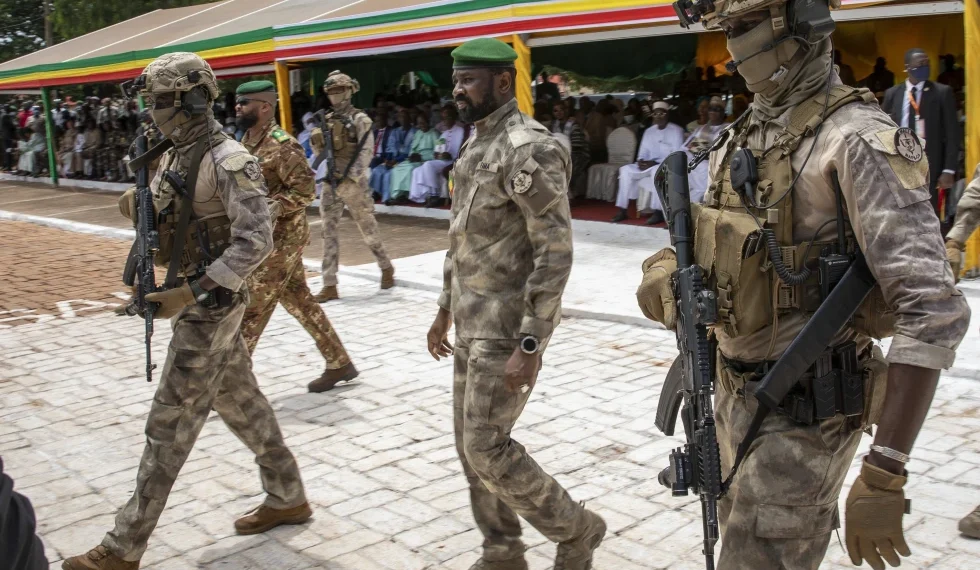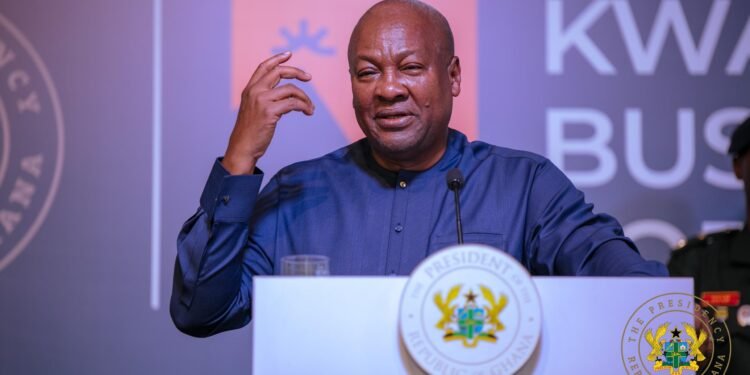Mali’s political crisis has deepened in recent months following the military junta’s decision to dissolve all political parties and propose a five-year presidential term for Colonel Assimi Goïta. These moves, coupled with the country’s growing alliance with Russia and its withdrawal from ECOWAS, mark a dramatic shift away from democratic norms in West Africa.
In an exclusive interview with Vaultz News, Mr. Benjamin Ankrah unpacked the wider implications of Mali’s authoritarian turn, its regional alliances, and the potential consequences for social cohesion and economic stability.
“The dissolution of political parties and Colonel Assimi Goita’s proposed five-year presidency signal a shift toward authoritarian governance in Mali. By eliminating political pluralism, the junta centralizes power, replacing diverse representation with a loyalist-dominated National Transitional Council.”
Benjamin Ankrah
According to Ankrah, these changes mirror similar patterns in the Sahel region. “Parallels exist in Burkina Faso, where Captain Ibrahim Traoré has extended junta rule, citing security, and in Niger, where post-2023 coup governance stifles opposition,” he explained. “Such shifts often entrench patronage systems, weaken checks and balances, and risk long-term instability.”
Security Alliances Shift Power Structure
Considering Mali’s closer alignment with Russia and the Alliance of Sahel States (AES), Ankrah offered a layered analysis. “Mali’s alignment with Russia and the AES reshapes domestic and regional dynamics,” he said, pointing to Russian-backed military efforts that bolster Goïta’s popularity among some citizens.
However, this strategy has serious drawbacks. “Reliance on foreign mercenaries risks alienating civilians and entrenching a military elite, sidelining governance reforms,” Ankrah warned. He argued that while AES cooperation could improve border security, “Russia’s resource-driven approach may yield uneven security gains, as seen in persistent attacks.”
Isolation from ECOWAS further complicates joint security efforts. “The junta’s focus on Russian partnerships may prioritize regime survival over sustainable security,” he noted, cautioning that long-term stability hinges on addressing root issues like poverty and marginalization.
Justification For Junta Rule Wearing Thin
Despite years of military-led governance, insurgent attacks continue to plague the country. “The junta’s prolonged hold on power in Mali is increasingly unjustified,” Ankrah said, referencing the deadly Bamako assault in September 2024.
He criticized the regime’s focus on power retention. “The junta’s focus on consolidating power—through party bans and election delays—has overshadowed governance and reconciliation,” he observed. Without improvements in security or livelihoods, “public support may erode further if basic needs, like electricity, remain unmet.”
With over 100 political parties now banned, Ankrah weighed in on the strategies available to the coalition resisting Goïta’s regime. “Grassroots mobilization through protests, as seen in May 2025, can sustain pressure,” he suggested.
Legal efforts could also play a role. “Contesting party dissolutions in court could expose junta overreach and galvanize support,” he added. He emphasized the need for decentralized coordination inspired by Sudan’s resistance networks, stating, “Unified messaging emphasizing non-violence and democratic values is crucial.”
Turning to social cohesion, Ankrah expressed concern over rising ethnic tensions. “Prolonged junta rule risks fracturing Mali’s social fabric,” he warned. Military operations disproportionately affecting Fulani communities have stoked ethnic resentment, pushing some toward extremist groups.
The government’s failure to implement the 2015 Algiers Agreement, which promised peace for northern communities, further alienates groups like the Tuareg. “Without inclusive dialogue, mistrust deepens, weakening Mali’s traditional ‘cousinage’ system of ethnic coexistence,” he said.

Economic Fallout From Russian Alignment
Ankrah also addressed the economic implications of Mali’s shift away from Western aid. “Western aid, previously a budget cornerstone, supported education and health; its decline risks service collapse,” he noted, citing ongoing electricity shortages as a flashpoint for public anger.
Russian partnerships, he argued, offer short-term military support but little developmental aid. “Russian deals, often tied to gold and minerals, provide military support but lack developmental focus,” he said. The opacity of these deals also threatens transparency and accountability.
“Long-term growth requires broader partnerships beyond Russia’s transactional model,” Ankrah concluded, “to stabilize governance and restore essential services.”
READ ALSO: Bawumia’s Redemption Depends on Regaining Public Trust – IMANI Boss



















